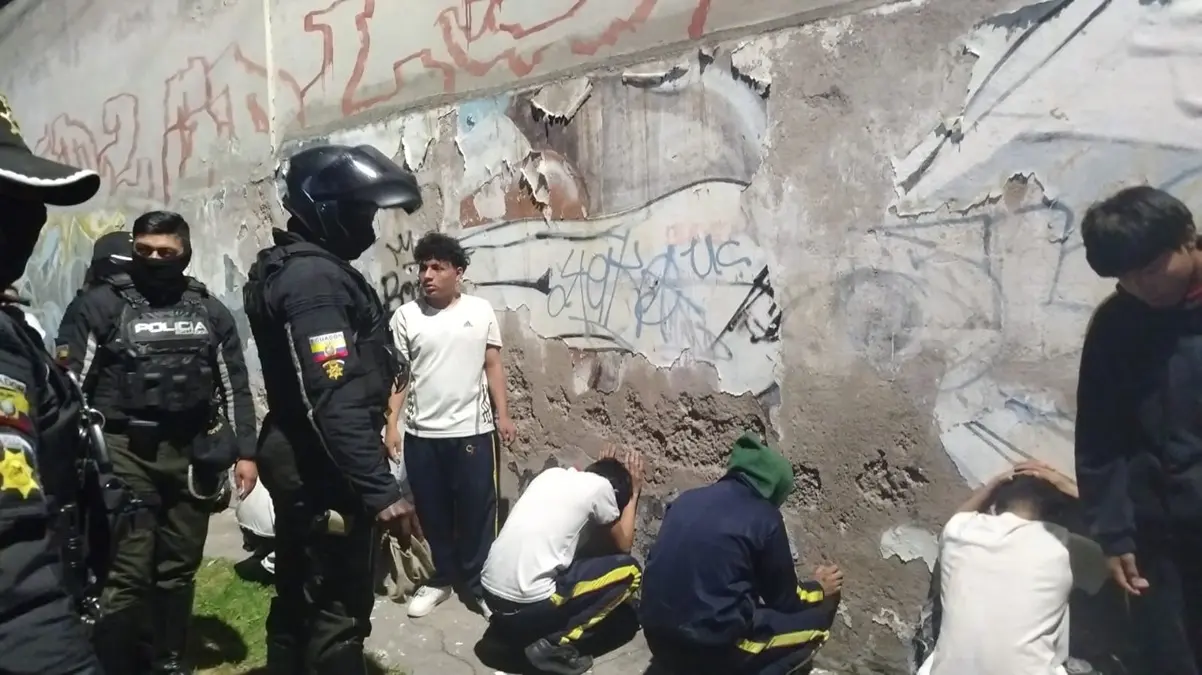Migrant Children Face Serious Risks in Darien Jungle: Plan International

Migrants a the Darien jungle. X/ @ImpactoLatino
December 16, 2024 Hour: 12:11 pm
They are exposed to violence and physical or sexual abuse.
On Monday, the NGO Plan International published a study showing that children, adolescents, and young migrants crossing the dense Darien jungle, the natural border between Panama and Colombia, continue to face serious risks during a journey they undertake to reach the United States.
RELATED:
Ten Migrants Drown While Crossing the Darien Jungle
Released to mark International Migrants Day, observed every December 18, the Needs Assessment conducted by Plan International in the Colombian municipalities of Turbo and Necoclí reveals the persistence of “critical protection risks” for migrant minors.
Human trafficking and smuggling, gender-based violence, sexual and labor exploitation, forced recruitment, and use and exploitation by non-state armed groups (NSAGs) are among the grave risks faced by families in transit, particularly girls, adolescent girls, and adult women.
Additionally, constant insecurity, family separation, and lack of knowledge about migration routes exacerbate mental health issues such as stress and anxiety, disproportionately affecting children and adolescents, especially unaccompanied or separated minors.
“Children and adolescents in forced human mobility who cross the Darién Gap to reach the United States are exposed to protection risks, including exploitation for various purposes,” said Pamela Escobar, Vice President of Programs at Plan International Colombia.
“Begging, forced labor, and sexual exploitation are some of the risks that intensify when they remain on beaches or streets until they can secure resources to continue their journey. This situation of precariousness and vulnerability compromises their well-being and safety,” she added, emphasizing the importance of maintaining comprehensive humanitarian responses for children and adolescents.
Violence and physical or sexual abuse are identified as the most frequent risks, along with the lack of life-saving basic resources such as drinking water, food, and hygiene supplies. Insecurity in the region manifests in theft, scams, and extortion, primarily by NSAGs.
Plan International also highlights the “interruption of educational trajectories” for minors, describing it as a “critical concern” since it “can result in setbacks in learning, limited future opportunities, and even illiteracy.”
The humanitarian NGO called for strengthening mechanisms to protect children and ensuring comprehensive humanitarian assistance, with a focus on mental health, emergency education, and basic services. This approach must consider “the immediate humanitarian needs of children, particularly the specific challenges and requirements faced by girls, adolescent girls, and young women.”
The NGO stressed the importance of “providing clear information about transit routes, migration rights, and available protection services for families in human mobility.”
Over the past year, Plan International implemented two humanitarian projects in the Darién region, between Colombia and Panama, to address the increase in mixed migration flows and protect children. These projects have supported the preparation and resilience of more than 10,000 migrants in transit, particularly pregnant women, breastfeeding mothers, and children under the age of 5.
teleSUR/ JF Source: EFE






